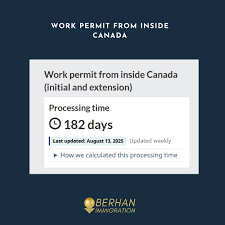
Introduction to IRCC Processing Times
As Canada continues to be a popular destination for immigrants, understanding the processing times set by the Immigration, Refugees and Citizenship Canada (IRCC) has become a critical aspect for prospective applicants. The IRCC processing times indicate how long it typically takes for an application to be processed for different types of immigration—whether it be for permanent residency, study permits, or family sponsorships. Knowing these timelines is important for applicants to better plan their future in Canada.
Current Processing Times
As of October 2023, the IRCC has provided updated figures for various categories of immigration applications. For express entry applications, the processing time averages around six months, while family sponsorship applications can take up to 12 months. Temporary resident applications, including study and work permits, often range between 3 to 5 months, depending on the volume of applications received and the applicant’s region.
Moreover, it is essential to note that processing times can be influenced by a range of factors including the complexity of the case, completeness of the application, and availability of resources at IRCC offices. Significant fluctuations have been observed especially due to the COVID-19 pandemic, which strained resources and impacted overall processing efficiency.
Impacts on Applicants
Delays in processing times can lead to uncertainty for applicants. Many individuals plan their lives around these timelines, such as adjusting work or study plans. It is crucial for applicants to stay informed and check the IRCC’s official website for real-time updates on processing times. Understanding these timelines helps applicants better prepare and manage their expectations.
Conclusion and Future Outlook
The IRCC processing times are an essential aspect of the Canadian immigration process, affecting thousands of lives each year. While current trends suggest a gradual return to pre-pandemic processing efficiency, stakeholders must remain vigilant about systemic changes and potential delays. Immigration remains a key pillar to Canada’s growth strategy, and ongoing improvements in technology and processing capabilities at IRCC are expected to streamline operations. Prospective applicants should stay abreast of these changes and keep an eye on any updates issued by IRCC, especially as the country aims to welcome more immigrants in the coming years. Ultimately, staying informed can provide applicants with the clarity they need as they navigate their immigration journey in Canada.



